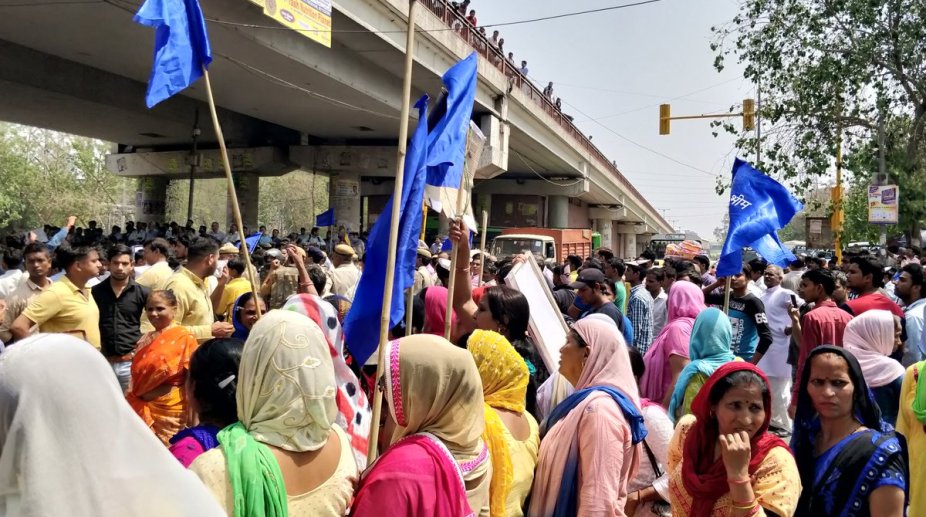Delhi traffic police has issued traffic advisories in the wake of protests by Dalit groups in the national capital on Monday.
Daily commutation was affected as Dalits marched from Mandi House to Jantar Mantar in the heart of the city during peak hours. One of the carriageways of Barakhamba Road was blocked by the protesters even as heavy police force was deployed at Mandi House in view of the protests.
Commuters have been asked to avoid the stretch from Patel Chowk to Jantar Mantar due to demonstrations. Similar advisory has been issued for Khajoori Chowk area in the city.
The police diverted traffic from Vasundhara Enclave near Mayur Vihar. Motorists have been advised to avoid taking the stretch that leads to Kalindi Kunj via Gazipur, Dallupura and DND.
Traffic was brought to a standstill in Delhi as protesters marched with flags and banners on the roads. Congestion in the main stretches led to further congestion on arterial roads. Many were stuck in traffic in the peak hours.
Trains were stopped outside Delhi by the protesters who squatted on tracks in several places including Ghaziabad. Among the trains stopped were the Dehradun Express and the Ranchi Rajdhani.
A mob of about 2,000 people disrupted trains at the Hapur station as well, disrupting the movement of many goods trains, they added.
Protests have turned violent in many parts of the country. Stone-pelting, damage to public property and rail blockades have been reported from Agra, Meerut, Jaipur and parts of Bihar. In Punjab, CBSE exams had to be put off.
One person was shot dead in Madhya Pradesh’s Morena.
Why the protests?
Dalit groups called for ‘Bharat Bandh’ against a Supreme Court order to amend the SC/ST Prevention of Atrocities Act.
In a judgment issued on 20 March, the Supreme Court said that the arrest of an accused under the Act is not mandatory and recourse to coercive action would be only after preliminary inquiry and sanction by the competent authority.
Coupled with this, the court said, that there was no “absolute bar against grant of anticipatory bail in cases under the Atrocities Act if no prima facie case is made out or where on judicial scrutiny the complaint is found to be prima facie mala fide”.
“…, we direct that in absence of any other independent offence calling for arrest, in respect of offences under the Atrocities Act, no arrest may be effected” without the permission of appointing authority in case of public servant or that of Senior Superintendent of Police in case of general public, said the bench of Justice Adarsh Kumar Goel and Justice Uday Umesh Lalit in its judgment.
The bench said it provided for the safeguard “in view of acknowledged abuse of law of arrest” under the Act.
The court’s decision was aimed at protecting honest officers from misuse of the provisions of the Act. The protesters are demanding that the provisions related to immediate arrest be restored claiming that the dilution creates a sense of insecurity and makes getting justice even more difficult.
(With inputs from agencies.)












